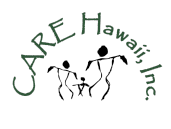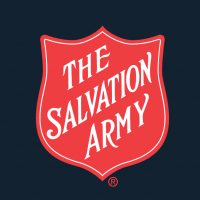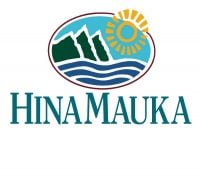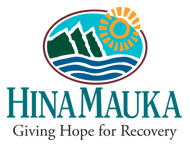Kalakaua Middle School
Drug Rehab Center in Honolulu, Hawaii
Kalakaua Middle School is a respected private school in Honolulu that offers specialized addiction treatment services, mental health curriculum, and various programs to support students in their recovery and help them develop healthy coping skills.
About Kalakaua Middle School in Hawaii
Kalakaua Middle School is a co-ed private school located in Honolulu, Hawaii. It is a well-known and respected school, providing a wide range of educational and enrichment services to students in grades 6-8. In addition to standard educational services, Kalakaua Middle School also offers specialized services for those dealing with addiction and substance abuse. Kalakaua Middle School’s addiction treatment services include individual counseling, group therapy, and other support services that are habit-forming and help individuals maintain sobriety. In addition to addiction treatment, the school also provides an extensive mental health curriculum and various other programs that address emotional and behavioral issues.
Kalakaua Middle School also provides specialized programs and activities that help support students in their recovery and help them develop healthy coping skills. These services include family counseling and support groups, substance abuse education and prevention, and relapse prevention programs. Through these methods and activities, students are able to find the best possible path to recovery. Moreover, the school also provides educational and recreational activities that encourage students to remain sober and live a healthy lifestyle.
Kalakaua Middle School has been accredited by the Hawaii State Department of Education and has received several awards for its educational services. All of its programs are developed and monitored by highly qualified professionals who possess the experience and skills needed to provide the best care for their students. Kalakaua Middle School also utilizes evidence-based practices and the latest research to give students the most effective and efficient addiction and substance abuse treatment possible.
Genders
Ages
Modality
Additional
Accreditations
SAMHSA
Conditions and Issues Treated
Levels of Care Offered
This center offers a variety of custom treatment tailored to individual recovery. Currently available are Aftercare Support, Drug Rehab, Outpatient, Residential, with additional therapies available as listed below.
Outpatient treatment is considered the lower intensity level of addiction treatment. It’s ideal for early phase addiction or lower intensity addictions. It may include weekly sessions instead of daily. It may include weekly sessions instead of daily. Peer group support, 12-step programs, and individual counseling may still be involved but at a lesser frequency than an intensive outpatient program. It is a good choice for someone who doesn’t need to go through a medically supervised detox and who has a supportive home environment. It requires motivation and dedication to commit to the program without constant monitoring.
Residential treatment programs are those that offer housing and meals in addition to substance abuse treatment. Rehab facilities that offer residential treatment allow patients to focus solely on recovery, in an environment totally separate from their lives. Some rehab centers specialize in short-term residential treatment (a few days to a week or two), while others solely provide treatment on a long-term basis (several weeks to months). Some offer both, and tailor treatment to the patient’s individual requirements.
Aftercare support should take place after outpatient treatment has ended. There are a few different types of aftercare support that patients can seek. These include 12 Step, Self-help groups (AA, NA), Therapeutic communities, Long-term, structured sober living arrangements, and Halfway houses (residential treatment centers).
Therapies & Programs
Individual therapy involves one-on-one sessions between the patient and therapist. It provides patients with a safe environment to openly discuss personal and sensitive issues with the therapist. They find the therapist as someone they can trust. Individual therapy aims to identify the core issues that would have led the patient to substance abuse and address them effectively. The therapist can develop patient-specific customized solutions through individual therapy, which aids speedier recovery.
Family therapy is a group problem-solving that aims to improve communication and relationships between the addict, their family, and sometimes friends. The main goal of family therapy for drug addiction is to create an environment where communication can occur without judgment, hostility, or blame. The therapist is with the family as they learn to communicate differently, especially with the addict when s/he is using. The family can learn to reduce their enabling behavior or rally together and support each other during tough times.
An addict’s family can play a vital part in helping them to avoid relapse because they can spot the warning signs and help them get back on track before it becomes too much of a problem. Family therapy is one of the most effective ways to help addicts stay on the path to long-term sobriety. When a drug addict decides that they want to try and get sober, it takes the support of every person they love to succeed. It can be incredibly difficult for loved ones to watch an addict go through the pain and suffering of withdrawal, but by being there with them and supporting them, they can help to make sure that the addiction never returns.
Groups typically involve meetings with other recovering addicts who can relate to one another’s experiences. They might meet in person or online and typically focus on the process of staying sober rather than overcoming a specific addiction.
In these groups managed by Kalakaua Middle School, addicts can build a sense of community and develop strong emotional connections with others who understand what they are going through. These beneficial relationships can help addicts overcome their cravings and prevent relapse at any point during the recovery process.
In general, trauma therapy is a clinical process that helps individuals deal with mental stress often caused by traumatic events. The therapist helps the person identify, understand, and work through the problem. This is done with the help of talking about it in group or one-on-one counseling sessions. Therapists use relaxation, role-playing, art, and music to help the person open up about what is bothering them.
There are many different types of trauma therapists, such as psychiatric nurses and counselors. Not everyone is a good candidate for this type of therapy; it is generally reserved for people who have recently experienced a traumatic event and struggle to get over it. It is often done for children, teenage victims of sexual assault, and war veterans.
Since addiction is a chronic physical and mental illness, addicts need to learn as many life skills as possible. Many drug treatment centers offer life skills activities as part of their addiction recovery programs. Examples include cooking classes, employment training, resume writing seminars, parenting classes, and computer training. Life skills activities help addicts find employment, take care of their families, and give back to the community.
The goal of medical nutrition therapy for drug and alcohol addiction is to help patients avoid “trigger” foods. For example, someone who craves alcohol may be addicted to sugar. Making sure this person eats a balanced diet with recommended amounts of protein, vegetables, and fruit can help manage urges to drink.
Nicotine replacement therapy treats nicotine addiction using external sources of nicotine, such as patches or gum to substitute for nicotine. This allows people trying to quit smoking to get their desired dose of nicotine without actually having to smoke cigarettes. The idea behind NRT is that by providing smokers with nicotine in forms that are not cigarettes, they may be more likely to quit smoking.
NRT has been available for many years now, and there is a wealth of evidence that shows that it helps people trying to quit smoking. There are several different types of NRT devices on the market now. Patients interested in quitting smoking should talk to their doctors about the best kind of NRT for them.
Patient Experience
Creative Arts
Creative Arts Therapy is a combination of several different types of art forms offered by Kalakaua Middle School. Music, painting/drawing, writing, and drama are just some examples. It can help with mental illness and addiction.
CAT is a form of art therapy at Kalakaua Middle School that uses creative activities such as music, painting, drama, and writing to help patients explore their feelings, develop social skills, and manage behavior. It is particularly effective with people who may not respond to other forms of therapy or lack the motivation to take part in more traditional forms of therapy. When combined with counseling, CATT can help people struggling with addiction or mental illness access their inner voices and discover their unique potential.
Experiential Therapy at Kalakaua Middle School
Experiential Therapy teaches people how to think differently about their lives and change their emotions by changing their behavior. This type of treatment is accomplished with various activities that may involve acting, props, arts and crafts, animal care, or other tools that may be effective.
This therapy aims for patients to release suppressed thoughts that cause bad feelings and drug addiction. Role-playing, arts and crafts, music, animal care, rock climbing, etc., are some of the activities used in this therapy. Gradually an individual will feel calmer and more loving which will change their perception positively. In addition to treating drug addiction, experiential therapy is beneficial for different behavioral and eating disorders.
Fitness Therapy
Another unique benefit of addiction treatment services is fitness therapy. In addition to being therapeutic in its own right, an exercise regiment can support a recovering addict’s sobriety by:
- Encouraging healthy eating and exercise habits to really get the body back into good working order
- Providing a distraction from cravings and underlying psychological issues that could lead to relapse
- Gaining a sense of accomplishment from completing physical challenges that further personal development
- Improving cardiovascular health and circulatory system functioning and increased energy levels to help the body stay active and enhance mood
Additional Details
Specifics, location, and helpful extra information.
Honolulu, Hawaii 96819 Phone Number(808) 848-2494 Meta DetailsUpdated November 25, 2023
Staff Verified
Kalakaua Middle School Patient Reviews
There are no reviews yet. Be the first one to write one.
Honolulu, Hawaii Addiction Information
Hawaii has one of the highest rates of drug abuse in the nation. Methamphetamines and marijuana are the most common drugs involved in drug-related crimes in Hawaii. The state loses $500 million every year due to methamphetamine abuse, according to the Hawaii Meth Project. More than 1 million prescriptions for prescription drugs are given out every year.
In 2016, there were 809 drug-related deaths in Honolulu. Heroin was involved in more than half of all overdose deaths in 2016. 6.1 percent of people in Honolulu abused drugs in the past month. In 2015, there were 2,538 admissions to treatment centers for drug abuse in Honolulu. There are many drug treatment facilities in Honolulu, HI that can help you or your loved one get sober.
Treatment in Nearby Cities
- Honolulu, HI (1.9 mi.)
- Hana, HI (128.1 mi.)
- Kealakekua, HI (178.0 mi.)
- Mountain View, HI (217.3 mi.)
- Wailuku, HI (93.5 mi.)
Centers near Kalakaua Middle School
The facility name, logo and brand are the property and registered trademarks of Kalakaua Middle School, and are being used for identification and informational purposes only. Use of these names, logos and brands shall not imply endorsement. RehabNow.org is not affiliated with or sponsored by Kalakaua Middle School.








